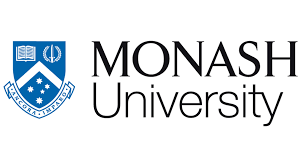New Data Indicates Improvements in Naloxone Availability, Urgency Persists for Overdose Prevention Measures
New research from Monash Addiction Research Centre has found almost 40 percent of community pharmacies across four of Australia’s most populous states do not stock the life-saving opioid overdose medication naloxone.
Naloxone is a safe and effective medicine that reverses the effects of opioid drugs such as heroin, morphine and oxycodone if administered by injection or nasal spray to a person who has overdosed.
Since 2022, all Australian community pharmacies have been eligible to supply naloxone to individuals at risk of experiencing opioid overdose for free with no prescription through the national Take Home Naloxone program.
Monash University researchers surveyed 530 community pharmacies across Victoria, New South Wales, Queensland and Western Australia about their stocking and provision of naloxone.
The research being presented today at the Monash Addiction Research Centre’s 2024 Emerging Researcher Symposium shows a marked increase in the availability of naloxone, with a total of 321 pharmacies who were surveyed (60.6 percent) reportedly stocking the medication.
The study also found pharmacies that provided opioid agonist therapies such as methadone and buprenorphine, which are used in the treatment of opioid dependence, were more likely to stock naloxone.
This research is the first to examine the availability of naloxone since the introduction of the national Take Home Naloxone program.
It follows a 2016 Australian study that found only 23 percent of pharmacies stocked naloxone.
A more recent study, published today in Drug and Alcohol Review, found that in 2020 less than half (38 percent) of Victorian community pharmacies stocked naloxone and a third of those did not actually supply it in the year prior.
Opioids present a significant public health issue nationally, with more than 1000 Australians dying needlessly from opioid overdoses each year.
The number of unintentional opioid related deaths in Australia has nearly tripled since 2006, with prescription opioids accounting for the majority of opioid-related fatalities.
There has also been great concern around the threat of synthetic opioids such as fentanyl and more recently nitazenes contaminating the illicit drug market.
Opioid expert and Monash Addiction Research Centre’s Deputy Director Professor Suzanne Nielsen said while the increasing availability of naloxone is encouraging, more action is needed to ensure the medication is universally available.
“With the recent increases in detections of a highly potent group of opioids, the nitazenes, in the drug market, making naloxone accessible is more important than ever,” said Professor Nielsen.
Professor Nielsen said the study highlights an opportunity for community pharmacies to play a greater role in reducing overdose mortality.
“Pharmacists are on the front line of overdose response, as highly accessible health professionals who can supply naloxone at no cost to people in the community,” said Professor Nielsen.
“It is fantastic that more pharmacists and pharmacies are getting involved and we hope that as awareness of the Commonwealth-funded national take-home naloxone program increases, that we see those numbers rising further.”
Research Fellow at the Monash Addiction Research Centre, Dr Louisa Picco, said while it was positive that pharmacies who provide opioid dependence treatment had higher rates of naloxone availability, other at-risk groups needed improved access too.
“As most opioid overdoses in Australia involve opioids prescribed for pain treatment, seeing all pharmacies come on board with the national program would be a great outcome,” said Dr Picco.
“We also hope that there can be increased awareness in the community about the safer use of prescription opioids, and that people who are prescribed them can access naloxone, along with relevant information about opioid safety.”

